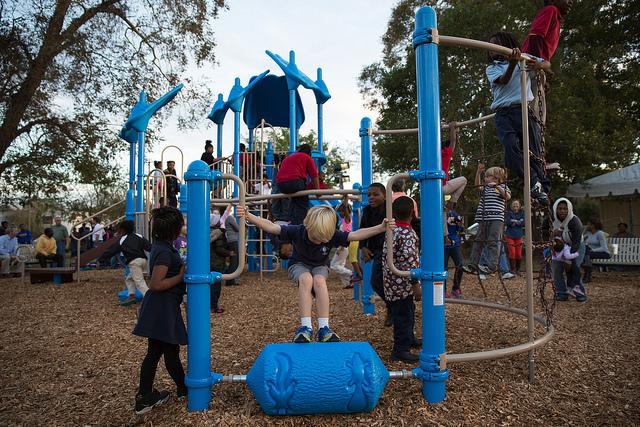Why Americans Envy the French Parenting Style

I have been living in France for almost a month and taking care of kids as an au pair. In this last month I have been observing and learning all about these kids, I am taking care of (and others, by observing them in the playground every day) and I now know why there are many books published in the US about so-called French Parenting Style.
I now realize why the French style might be envied. I also know it is not accomplished by magic or “superiority.” First of all, let me just say that, unlike most Ameircan children, French kids have a very structured and organized life. Their daily program, from what I have observed, consists of tasks and activities more or less adapted to the kid's age and after-school activities. After school, French kids rush either to their stay home moms, dads, or nannies and head straight to the park for after-school playtime. Next comes “le gouter” (one of the four meals they have during their day) which usually consists of something sugary like sweets of any sort: chocolates, cookies, little mini cakes etc. These kids don't just eat one or two pieces. No, the adults bring bagfuls of confectionary goods.
After the park and depending on the child’s age, they either head toward their next extra-curricular activity, go home for more play time, or take a warm bath. Then diner is served by 7:30 pm and they are tucked in bed by 8:00pm. The trick is fuelling their hyperactivity with sugar for energy (and they have a lot of it), and then they slowly ease into the later hours of the day.
Joanna Goddard, in her review of the bestselling book Bringing Up Bébé by Pamela Druckerman, makes four points in describing why why the French method works. Basically, French parents draw the line between their own roles and their children. They are not overprotective and they do not constantly attend to their kids needs.
(Photo: Author Pamela Druckerman)
In her book “Why American Kids Are Brats,” Judith Warner nicely lays out why the French parenting style works and the American method does not. First of all, she observes that “French kids can be a whole lot more pleasant to be around than our own. They’re more polite. They’re better socialized. They generally get with the program; they help out when called upon to do so, and they don’t demand special treatment. And that comes directly from being taught, from an early age, that they’re not the only ones with feelings and needs.” In other words, children have to learn from an early age to behave in the outside world. They learn that their environment and their peers are part of society. They are taught to look beyond their own needs and satisfactions.
Warner compares incidents from the perspective kids lives. The French child behaves at a restaurant while American children won't even show up at play dates when they don't feel like it. American parents indulge this in the name of “advocating for your child.” But what happens when the child makes the “wrong” decision? Who will tell that child that the way they are acting is wrong and disrespectful towards a friend, classmate, or another parent? How is the child supposed to learn basic social skills such as courtesy and politeness if there isn’t a hint of discipline, teaching, and correcting “wrong” behavior?
I agree with Judith Warner that, while the French parenting style may not be superior or unique, the French realize and recognize the importance of teaching children how to behave in society and how those roles need to be learned and reminded on a regular basis. When it comes to kids, consistency is key.








